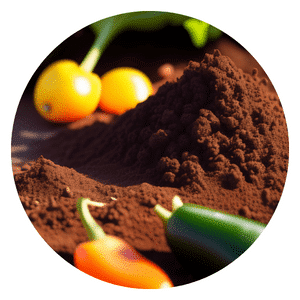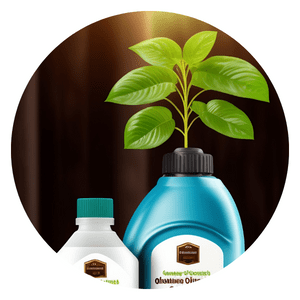How to Grow Zucchini in Colorado
Zucchini is a versatile and easy-to-grow vegetable that thrives in Colorado’s sunny and dry climate.
Whether you’re an experienced gardener or just starting out, growing zucchini can be a rewarding experience.
With the right techniques and care, you can enjoy a bountiful harvest of this delicious summer squash.
In this article, we’ll cover everything you need to know about growing zucchini in Colorado.
From selecting the right variety to preparing your soil, planting, watering, fertilizing, and harvesting your crop- we’ll provide you with all the information you need to grow healthy and tasty zucchinis.
Colorado Zucchini Menu
Timing is key
In Colorado, the last frost date can vary depending on your location and altitude.
It typically falls between late April and early June.
Therefore, it is important to keep an eye on your local weather patterns to determine when the soil has warmed up enough for planting zucchini seeds or seedlings.
Zucchini plants require warm soil and plenty of sunlight to thrive.
If planted too early, they may struggle to grow properly and could even die from frost damage.
Waiting until after the last frost date ensures that your plants will have a better chance of survival and growth.
Once planted, zucchini plants should be watered regularly but not overwatered as this can lead to root rot. They also benefit from regular fertilization throughout the growing season.
With proper timing and care, you can enjoy a bountiful harvest of fresh zucchinis in Colorado’s short growing season.
Choose the right variety
Choosing the right variety of zucchini is crucial to growing a successful crop in Colorado’s climate.
Two varieties that have been known to thrive in this region are “Black Beauty” and “Costata Romanesca.”
These varieties are well-suited for Colorado’s hot, dry summers and cool nights.
“Black Beauty” is a popular variety of zucchini that produces dark green, cylindrical fruits with tender flesh. It has a high yield and is resistant to common diseases such as powdery mildew.
“Costata Romanesca,” on the other hand, is an heirloom variety from Italy that has ribbed, light green fruit with a nutty flavor.
It is also highly productive and can withstand cooler temperatures.
When selecting zucchini varieties for your garden in Colorado, it’s important to consider factors such as heat tolerance and disease resistance.
By choosing varieties like “Black Beauty” or “Costata Romanesca,” you can increase your chances of successfully growing zucchini in this challenging climate.
Additionally, it’s important to follow proper planting techniques and care for your plants throughout the growing season to ensure a bountiful harvest.
Site selection
When it comes to growing zucchini plants in Colorado, site selection plays a crucial role in determining the success of your crop.
Zucchinis thrive in warm and sunny environments, which means you need to choose a spot that receives at least 6-8 hours of direct sunlight daily. This will help the plant grow vigorously and produce an abundant harvest.
Additionally, make sure that the site you select has well-draining soil.
Zucchini plants don’t do well in waterlogged soils, so if your garden doesn’t have good drainage, consider adding organic matter or raised garden beds to improve drainage.
Also, ensure that there’s enough space for the zucchini plant to spread out as they tend to be large plants with extensive root systems.
Lastly, avoid planting zucchinis too close together as this can lead to overcrowding which may affect their growth and development.
It’s recommended that you space them about 2-3 feet apart from each other.
By selecting a sunny location with good drainage and providing adequate spacing for your zucchini plant, you’ll be on your way to producing a bountiful harvest of fresh and delicious zucchinis in Colorado!
Oh Colorado, land of the mountains and sun, Where zucchini grows tall and strong, Amidst the dry heat and rocky terrain, It thrives, bringing nourishment anew. In summer's heat, it grows abundant and true, Harvesting bountiful yields for me and you.
Chappy The Gardener
Soil preparation
One of the important aspects of growing zucchini in Colorado is soil preparation.
The state has a variety of soils, and some may be too compact or lacking nutrients for optimal plant growth.
Therefore, it’s essential to amend your soil with organic matter, such as compost or well-rotted manure. These materials can improve drainage and nutrient content in your soil.
Compost is an excellent choice for amending Colorado soils because it contains many beneficial microorganisms that help break down organic matter into usable nutrients for plants.
Additionally, it helps retain moisture in the soil, which can be crucial during hot summer months when water may be scarce.
Well-rotted manure also provides similar benefits to compost but should only be used if it has been aged long enough to prevent burning young plants.
By amending your soil with organic matter before planting zucchini seeds or seedlings, you set yourself up for success by providing adequate drainage and nutrients necessary for healthy plant growth.
It’s also critical to continue adding compost or other organic materials annually to maintain proper soil health through crop rotation cycles.
Proper spacing
Planting zucchini in your garden is an excellent way to enjoy fresh, healthy produce all summer long.
One of the most important things you can do to ensure a successful harvest is to give your plants plenty of space.
Zucchini plants are known for their rapid growth and large size, so it’s crucial to provide enough room for them to spread out.
When planting zucchini, be sure to space each plant at least 3-4 feet apart. This allows for good air circulation between the plants, which helps prevent moisture buildup and reduces the risk of disease.
Proper spacing also ensures that each plant has access to adequate sunlight and nutrients from the soil.
If you’re short on space in your garden, consider growing zucchini vertically by using trellises or other supports. This method not only saves space but also helps improve air circulation around the plants.
By giving your zucchini plants plenty of room to grow and thrive, you’ll be rewarded with a bountiful harvest all season long.
Mulching
Mulching is a simple yet effective way to maintain the health of your zucchini plants.
Applying a layer of organic mulch, such as straw or wood chips, around the base of your plants can help to conserve moisture in the soil. This is especially important in Colorado where dry summers can quickly deplete soil moisture.
In addition to conserving moisture, mulching also helps to suppress weeds. Weeds compete with your zucchini plants for nutrients and water, which can stunt their growth and reduce yields.
By covering the soil with a layer of mulch, you’ll prevent weed seeds from germinating and growing.
Finally, mulching helps to maintain consistent soil temperatures around your zucchini plants. Fluctuating temperatures can stress out young seedlings or cause mature plants to produce fewer fruits.
A layer of organic mulch acts as insulation for the roots, keeping them cool during hot days and warm during colder nights.
Overall, applying a layer of organic mulch is an easy and affordable way to improve the health and productivity of your zucchini plants in Colorado’s challenging climate.
Watering
Watering is a crucial aspect of growing zucchini in Colorado.
During hot and dry periods, it is essential to keep the soil evenly moist. This means watering frequently but not overwatering to avoid waterlogging the soil.
Zucchini plants require an average of one inch of water per week, which can be supplied through rainfall or irrigation.
When watering zucchini, it is best to water deeply at the base of the plants rather than overhead watering.
Overhead watering can splash soil-borne diseases onto the foliage, promoting fungal growth and other plant diseases.
Deep watering allows the roots to absorb moisture from deep within the soil and encourages strong root development.
To ensure even moisture distribution, consider using a soaker hose or drip irrigation system instead of a sprinkler.
These methods deliver water directly to the base of plants without wasting excess water on nearby areas that don’t need it.
It also helps conserve water by reducing evaporation loss from the surface area of your garden bed.
Fertilizing
When it comes to fertilizing your zucchini plants, it’s important to choose an organic fertilizer that is balanced and follows the instructions on the package.
Excessive nitrogen can result in more foliage growth than fruit production, which is not ideal for zucchini plants.
Organic fertilizers are a great option because they release nutrients slowly over time, allowing your plants to absorb them as needed.
When applying fertilizer, it’s important not to overdo it.
Too much fertilizer can damage your zucchini plants and even kill them.
Follow the recommended dosage on the package and apply it evenly around each plant.
Water thoroughly after applying fertilizer to help distribute the nutrients throughout the soil.
Overall, fertilizing is an essential part of growing healthy zucchini plants in Colorado.
By using a balanced organic fertilizer and avoiding excessive nitrogen, you can ensure that your zucchinis produce plenty of delicious fruits all season long.
Pest management
Growing zucchini in Colorado can be a challenge, especially when it comes to dealing with pests.
Squash bugs and vine borers are two of the most common pests that can cause damage to your zucchini plants.
It is important to monitor your plants regularly for any signs of infestation, such as wilted leaves or holes in the stems.
One effective way to control these pests is through organic methods.
Handpicking the insects off your plants is a great way to get rid of them without using any chemicals.
You can also use neem oil sprays, which are made from natural ingredients and do not harm beneficial insects.
In addition to pest management, it is important to provide proper care for your zucchini plants by watering them deeply and fertilizing them regularly.
By following these tips and keeping an eye on your plants, you can enjoy a bountiful harvest of fresh zucchini all summer long.
Disease prevention
When growing zucchini in Colorado, it’s important to prevent fungal diseases that can harm the plants.
One way to do this is by watering at the base of the plants instead of from above. This helps keep moisture away from the leaves and prevents fungal spores from settling on them.
Additionally, providing good air circulation around the plants can help prevent fungal growth as well.
If any parts of a zucchini plant become infected with fungus, it’s crucial to remove them promptly. This prevents the disease from spreading to other parts of the plant or nearby plants.
It’s also important to avoid overhead watering, which can create an environment that is more conducive to fungal growth.
By following these tips for preventing and managing fungal diseases, you can help your zucchini thrive in Colorado’s unique climate and soil conditions.
Harvesting
Harvesting is an essential aspect of zucchini cultivation, and it determines the quality and quantity of your produce.
Zucchinis should be harvested when they are still small to medium-sized, around 6-8 inches in length. This ensures that they are at their peak tenderness and flavor.
When left on the plant for too long, zucchinis can become tough and bitter.
Regular harvesting also encourages continuous fruit production throughout the growing season.
By picking off mature fruits promptly, you allow room for new fruits to grow and develop on the plant. This way, you can have a steady supply of fresh zucchinis instead of having a glut all at once.
To harvest zucchinis properly, use pruning shears or a sharp knife to cut them from the vine about an inch above the fruit stem.
Avoid pulling or twisting them off as this can damage both the fruit and plant.
Store harvested zucchinis in a cool place away from direct sunlight until ready to use or cook them immediately for best flavor and texture results.
Enjoy and share
Zucchini is a staple crop in many Colorado gardens.
It’s easy to grow and produces an abundance of fruit throughout the growing season.
Once you’ve harvested your zucchini, it’s time to put it to good use in the kitchen. There are countless delicious recipes that feature this versatile vegetable.
For a quick and easy meal, try stir-frying sliced zucchini with other vegetables like bell peppers, onions, and garlic.
You can also add protein like tofu or chicken for a heartier dish.
Zucchini is also great in pasta dishes – simply slice it into thin ribbons using a vegetable peeler and toss with cooked spaghetti or linguine.
If you’re feeling adventurous, try baking with zucchini! It adds moisture and nutrition to baked goods like muffins and breads.
Zucchini bread is a classic recipe that’s perfect for breakfast or as an afternoon snack.
Don’t forget to share your bounty with friends and neighbors – they’ll appreciate the fresh produce!
In conclusion, growing zucchini in Colorado can be a rewarding and enjoyable experience.
With proper care and attention to detail, gardeners in this state can produce an abundant harvest of this versatile vegetable.
By selecting the right varieties, providing ample sunlight and water, and taking steps to prevent pests and diseases, you can enjoy delicious zucchini all season long.
So why not give it a try?
Whether you are an experienced gardener or just starting out, zucchini is a great choice for your Colorado garden.
Happy planting!
Click To Grow
Helps Us Grow – Share If You Like
















